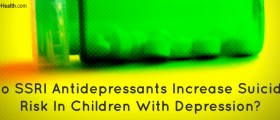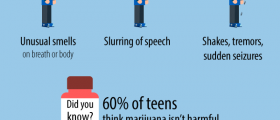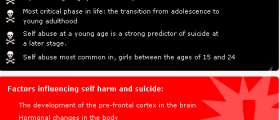
Overview of Teen Depression
Depression as a mental illness is a debilitating condition that affects every aspect of a person’s life regardless of their age group. As teenagers are often moody and uninterested many individuals underestimate the effects of clinical depression on adolescents. The general characteristics of a depressed teenage person usually include alcohol and drug abuse, problems at school or home, suicidal thoughts and so on. As is the case with any other psychological or physical health problem a strong support system composed of family members, friends, teachers, coaches, and so on is vital for any progress when it comes to battling depression. Any type of mood disorder, especially depression, puts an additional strain on a person who is already dealing with various changes. As the most prominent symptoms of depression reflect the general teenage mood of melancholy, sadness or anger, it can be a challenge to distinguish a depressed adolescent from an average person going through puberty. In addition, it is estimated that only 1 out of 5 teenagers receive help even though help is readily available. Teenagers, unlike adults, often have to rely on other people in their lives to recognize their symptoms and seek help for them. So it is crucial that people who are dealing with adolescents inform themselves about the signs and symptoms of depression.
Signs and Symptoms of Teen Depression
Aside from the general unhappiness of teenagers, the most common symptoms of depression include aggression, rage, and irritability. Other symptoms of adolescent depression include attention problems, lack of energy, general disinterest, restlessness, avoidance of friends and family, frequent crying, and thought of suicide. Whether a parent or a caregiver is unsure if their teenager is depressed or just acting out elements of the condition that should be considered are the length of symptoms, their frequency, as well as severity. Another thing to keep in mind is the difference between the teenager’s general character and the personality of their depressed self. Further, there are slight differences between adult and teenage depression. For instance, depressed teens often complain of unexplained pain for which there is no medical cause. Also, adolescents battling depression are more so irritable and angry than they are sad. Depressed teenagers are very sensitive to criticisms. Lastly, affected adults usually avoid most people in their lives while teenagers keep some contacts or start hanging out with different kinds of people.
Effects of Teen Depression
There are numerous ways in which teenage depression affects their lives and the lives of those around them. As previously mentioned, attention problems and lack of energy are prominent symptoms of teen depression, and make it difficult to keep up with schoolwork and achieve high grades. Also, many teenagers run away from home or threaten to run away, and in most cases such behavior is an attempt to get someone's attention and cry for help. Moreover, many adolescent boys who are depressed act very violently and aggressively while most teenagers battling depression engage in reckless behavior such as unsafe sex, dangerous driving, and heavy drinking and drug abuse. In today’s day and age many teenagers escape their realities by spending lots of time online but rather than solve the problem such behavior only makes it worse as it only increases their isolation and deepens the depression. Finally, as is the case with anyone battling depression it negatively affects the sense of self-worth self –esteem.
Suicide Warning Signs in Teenagers
Coupled with many cases of major depression are suicidal thoughts and attempts. Anyone who is dealing with a depressed individual, be it a teenager or an adult, needs to be informed about the risk factors, warning signs, as well as crisis situation intervention. Anyone who is obsessed with death, talks about suicide, ways to commit suicide, and so on, has to be taken seriously. Also, teenagers who are hopeless and appear as if they are ready to give up on themselves could be thinking about suicide. If they start giving their possessions away or if start isolating themselves from close friends there is a strong possibility they will try and commit suicide. Teenagers will often engage in reckless behavior but doing it in excess as if wanting to die usually is a sign of suicidal thoughts. In addition, many teenagers engage in alcohol and drug abuse which only increase the possibility that they will take their own lives. Further, if an individual is severely depressed but manages to keep the thoughts of suicide inside needs someone to talk to so offering to listen or asking whether they are contemplating suicide often helps. Unconditional love and support as well as empathy could provide a teenager with hope and a sense of belonging which people suffering from this condition usually lack. Notwithstanding, anyone who is trying to help a disturbed teenager needs to be gentle but persistent.

















Your thoughts on this
Loading...